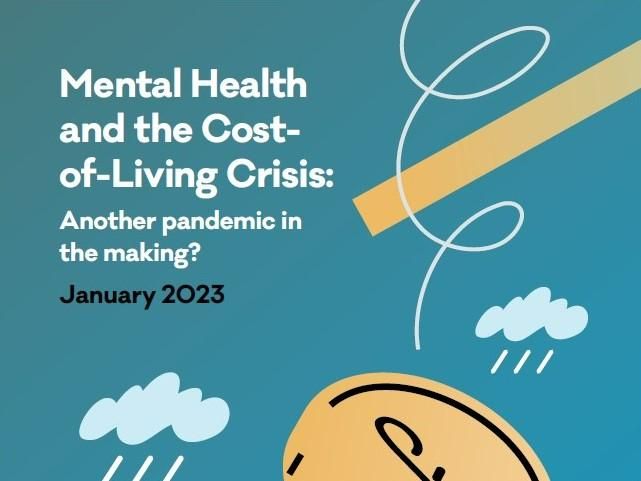- The current cost of living crisis started in late 2021, and, according to some experts, it will last until the second half of 2023.
- Financial struggles can severely impact all aspects of a person’s life, and mental health is often overlooked when discussing the consequences of economic crises.
- According to new data, the current cost of living crisis has had serious negative effects on Brits’ overall well-being.
The current cost of living crisis was predicted to last two years, and as we near the end of that period, the many aspects of life in the UK worsened by it are becoming more and more apparent. Anti money laundering experts from Kyros analysed data collected by the Office for National Statistics to see the impact the current financial crisis has had on the mental health of people across the UK.
Being behind on energy bills decreases happiness, while increasing anxiety levels
Although the percentage of those reporting they were behind with their bills is relatively stable compared to last year, 47% of adults who have either gas or electricity supplied to their home report that affording their bills is very, or somewhat, difficult at the beginning of this year.
The adults were presented with four different questions about life satisfaction and asked to give their answer on a scale from 0 (not at all) to 10 (completely). The first question was about their overall satisfaction with their life; the second was about how worthwhile they consider the things they are doing in their life are; the third question required them to rate their level of happiness the day before the survey; the final question was about their level of anxiety the previous day.
Those who were behind on their bills were more likely to give a lower score as an answer to the first three questions, while they scored their anxiety levels comparably higher to those who were not behind on their bills.
Specifically, only 38% of adults reported their life satisfaction as “very high” (9%) or “high” (29%), a concerningly low number compared to 67% of those not behind on their bills and reported a “very high” (18%) or “high” (49%) life satisfaction.
28% of people in arrears reported low satisfaction, while only 9% of those not behind on bills reported low satisfaction. Furthermore, the first group reported higher anxiety scores — 49% reported high anxiety levels, while 33% of those not in arrears claimed their anxiety levels were high.
Struggling to pay energy bills and rent/mortgage payments has severe negative consequences on mental well-being
47% of adults reported that it was “very difficult” (12%) or “somewhat difficult” (34%) to afford their energy bills. Although not as high, the percentage of those struggling to pay rent or mortgage is still concerning, as 30% reported it being “very difficult” (7%) or “somewhat difficult” (23%).
Not surprisingly, those struggling with their energy bills payments were more likely to report high anxiety levels, 51%, whereas that percentage is significantly lower among those who reported no problems paying their energy bills, 22%.
Similarly, 51% of those who struggled to pay their rent or mortgage reported high anxiety levels, while 29% of those who had no problems affording rent or mortgage payments claimed their anxiety levels were high.
It is not just high anxiety levels; a trend of overall poor mental well-being can be found among those who found it very, or somewhat difficult, to pay energy bills. 17% of them reported low life satisfaction, compared to only 5% of those who found it “very easy” to pay their energy bills, and 20% reported low happiness levels, contrasted with 8% of those belonging to the second group.
When it comes to those who struggled with rent or mortgage payments, 20% of them reported low life satisfaction, and 21% reported low happiness. Looking at those who had no problems making their rent and mortgage payments, only 7% reported low life satisfaction and 11% reported low happiness.
Borrowing money or using credit leads to higher anxiety
Of those who reported borrowing more money or using more credit at the beginning of 2023 compared to one year ago, 22% reported a low happiness score, which is exactly double the percentage of those who didn’t need to worry about more debt. Also, 40% of those borrowing more money or using more credit reported high anxiety levels.
A spokesperson for Kyros said: “There is a shortage of mental health professionals around the world, while the demand is high. During economic crises, people often put their mental health in last place, especially because seeking help from a mental health professional can be a costly luxury, even in less abnormal times.
Another inescapable consequence of economic crises is an increase in financial scams, to which those affected are more susceptible. Scams have been on the rise since the beginning of the cost of living crisis in the UK, as scammers aim to profit from the desperation of people struggling financially. It is important to find a system of support so as to prevent any dangerous and permanent consequences on our overall well-being and avoid having to recover from them for years after the crisis ends.”
Credit to https://kyrosaml.com/ who provided the above post
Help keep news FREE for our readers
Supporting your local community newspaper/online news outlet is crucial now more than ever. If you believe in independent journalism, then consider making a valuable contribution by making a one-time or monthly donation. We operate in rural areas where providing unbiased news can be challenging. Read More About Supporting The West Wales Chronicle


























